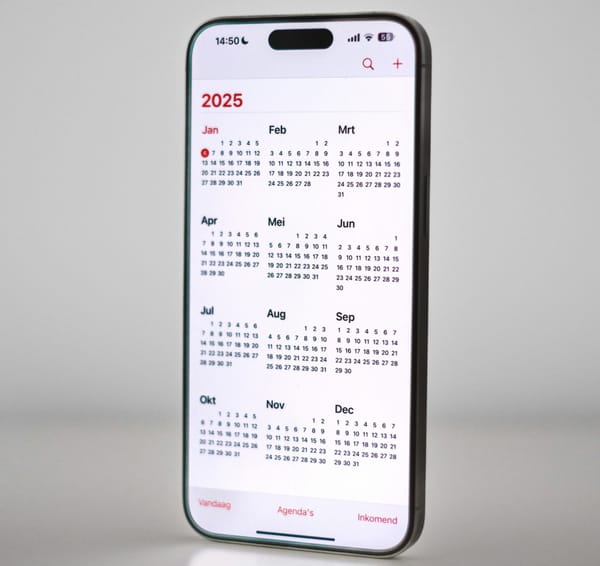Fall Into Safety: Your Essential Guide to Avoiding Seasonal Scams in Late September 2025

Published: September 22, 2025 | ScamWatchHQ.com
As the leaves change color and pumpkin spice fills the air, scammers are also shifting into high gear. Late September marks a critical transition period where multiple scam seasons overlap—from disaster relief fraud to early holiday shopping schemes. With Americans losing over $10 billion to scams in 2023 alone, staying vigilant during this peak fraud season has never been more important.
The Perfect Storm: Why Fall is Prime Scam Season
September through November creates what security experts call a "perfect storm" for fraudsters. Multiple factors converge during this period:
- Natural disasters: Hurricane season peaks, creating opportunities for fake charity scams
- Back-to-school shopping: Late shoppers still seeking deals on supplies and electronics
- Early holiday preparations: Retailers begin promotions, and scammers follow suit
- Home improvement season: Fall maintenance needs open doors for contractor fraud
- Seasonal employment: Job seekers vulnerable to fake seasonal position offers
The Better Business Bureau reports that home improvement scams alone rank as the fifth riskiest for consumers, with a median loss of $1,800 in 2024.
Current Threats: What's Happening Right Now
1. Hurricane Relief Scams Surge After Recent Disasters
With Hurricane Helene's recent devastation and Hurricane Milton's approach, fraudsters are capitalizing on Americans' generosity. Over 70 suspicious domains appeared after the 2025 Texas floods, many mimicking disaster relief donation campaigns. The FBI has already opened thousands of fraud investigations related to recent hurricanes.
Red flags to watch for:
- Unsolicited calls or emails claiming to be from FEMA or legitimate charities
- Pressure to donate immediately via gift cards, wire transfers, or cryptocurrency
- Fake volunteer groups asking for money for "supplies"
- Phishing emails with supposed disaster photos containing malware
How to donate safely:
- Only give through established charities verified on sites like Charity Navigator
- Never donate via gift cards or wire transfers
- Verify FEMA representatives by asking for photo ID badges
- Report suspicious charity solicitations to the National Center for Disaster Fraud at (866) 720-5721
2. AI-Powered Scams Reach New Heights
AI-powered scams are on the rise, with criminals using AI to create convincing phishing emails, deepfake videos, and fake voices. This fall, we're seeing unprecedented sophistication in fraud attempts.
What's new in 2025:
- Deepfake videos of celebrities endorsing fake products
- AI-generated voices mimicking family members in distress
- Phishing emails with perfect grammar and personalized details
- Fake customer service chatbots on cloned websites
Protection strategies:
- Create a family password to verify identity during emergency calls
- Be skeptical of celebrity endorsements on social media
- Double-check URLs before entering any information
- Use official apps rather than web browsers for shopping
3. Home Improvement and Maintenance Fraud
Energy audits and furnace repairs: Scammers may offer a "free" energy audit to reduce heating costs, claiming to be part of your local utility company. As homeowners prepare for winter, fraudsters pose as contractors offering seasonal services.
Common fall home scams:
- Fake chimney sweeps pushing unnecessary repairs
- Phony energy auditors who burglarize homes
- Duct cleaning services that damage heating systems
- Roof repair scams following storms
Before hiring anyone:
- Get multiple written bids
- Check BBB ratings and reviews
- Never pay the full amount upfront
- Verify contractor licenses and insurance
4. Early Holiday Shopping Traps
Though it's only September, Black Friday emails alone saw a 495% increase from October to early November in 2024, and scammers are starting even earlier this year.
Current shopping scam tactics:
- Fake retail websites with incredible deals
- Phishing emails about "missed deliveries"
- Social media ads for counterfeit products
- Gift card scams targeting early shoppers
- Fake shopping spree giveaways
Shop safely by:
- Using credit cards instead of debit cards
- Shopping through official retailer apps
- Researching unknown sellers thoroughly
- Being wary of prices that seem too good to be true
5. Back-to-School Stragglers Still at Risk
While peak back-to-school shopping has passed, late shoppers remain targets for sophisticated scams involving fake online stores, phishing attempts, and fraudulent scholarship offers.
Active threats include:
- Fake teacher giveaway emails requesting shipping payments
- Phony test prep material offers
- Counterfeit electronics at "discount" prices
- Student tax scams threatening college enrollment
The Technology Making Scams Worse
Artificial intelligence has revolutionized fraud in 2025. Fraudsters used brand names, like NBA merchandise, to add credibility to fake charity scams and are now using AI to create entire fake websites in minutes. Domain Generation Algorithms help criminals launch large-scale operations instantly.
What makes AI-powered scams particularly dangerous:
- Speed: Thousands of fake sites can be created overnight
- Sophistication: Perfect grammar and professional designs
- Personalization: Scams tailored to your browsing history
- Scale: Automated systems targeting millions simultaneously
Your Action Plan: Staying Safe This Fall
Immediate Steps to Take:
- Update all software: Enable automatic updates on all devices
- Strengthen passwords: Use unique, 16+ character passwords for financial accounts
- Enable two-factor authentication: Add extra security to important accounts
- Review credit card statements: Check for unauthorized charges weekly
- Educate family members: Share scam warnings with elderly relatives
Red Flags That Should Always Stop You:
- Urgent demands for immediate action
- Requests for payment via gift cards or wire transfers
- Unsolicited calls about account problems
- Deals that seem impossibly good
- Emails with suspicious attachments or links
If You've Been Scammed:
- Report immediately: File complaints at ReportFraud.ftc.gov
- Contact your bank: Dispute charges and request new cards
- Document everything: Save all communications and receipts
- Alert credit bureaus: Consider a fraud alert or credit freeze
- Inform local authorities: File a police report for identity theft
Looking Ahead: What's Coming Next
As we move deeper into fall, expect:
- October: Massive increase in fake shopping sites
- November: Black Friday scam emails exploding by 500%
- December: Peak charity fraud and shipping notification scams
The Bottom Line
This fall season brings unprecedented challenges with AI-enhanced scams, disaster relief fraud, and overlapping shopping seasons creating multiple vulnerabilities. 73% of U.S. adults have experienced some kind of online scam or attack, proving no one is immune.
Remember: legitimate organizations never pressure you for immediate decisions or demand payment through gift cards. When in doubt, hang up, delete the email, and contact the organization directly through official channels.
Stay informed, stay skeptical, and stay safe this fall season.
For daily scam alerts and prevention tips, subscribe to ScamWatchHQ's newsletter. Report scams to our community database to help protect others.
Resources for Help:
- FTC Fraud Reporting: ReportFraud.ftc.gov
- National Center for Disaster Fraud: (866) 720-5721
- FBI Internet Crime Complaint Center: ic3.gov
- Better Business Bureau Scam Tracker: BBB.org/ScamTracker





